Tyoma made a new drawing in Gimp today called “Save it for Mommy.”
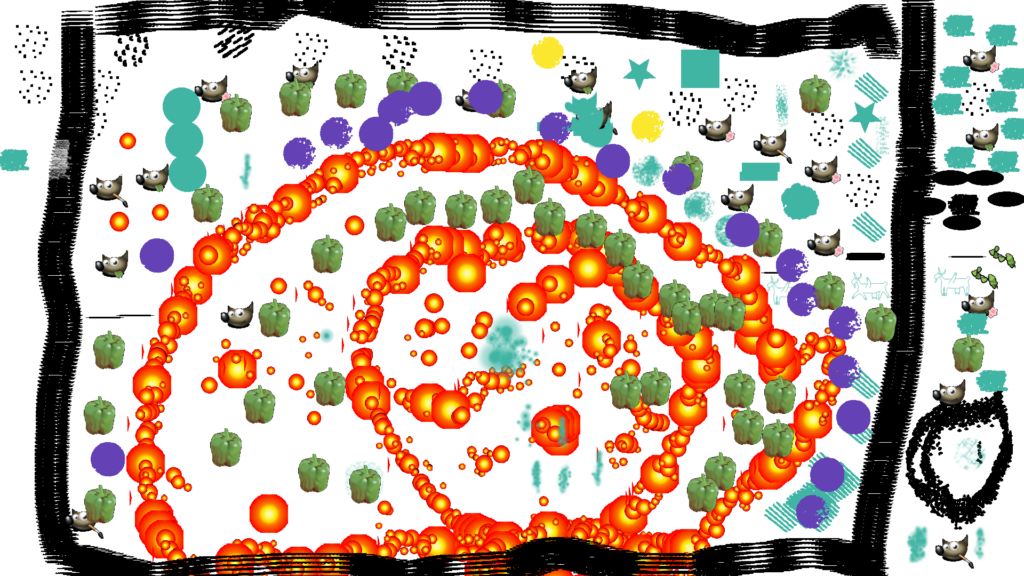
Tyoma made a new drawing in Gimp today called “Save it for Mommy.”

Today I went to the Santa Cruz, California protest march against Trump’s Republican fascist, racist, Christian white supremacist, regime in the USA. Thousands of people stood up and blocked the streets as we marched through Santa Cruz. We got a lot of positive feedback, including supportive honks and yelling, from people in cars passing by. We didn’t face anyone that was pro-Trump.
I loved the “This is what democracy looks like” chant as we took over the street.
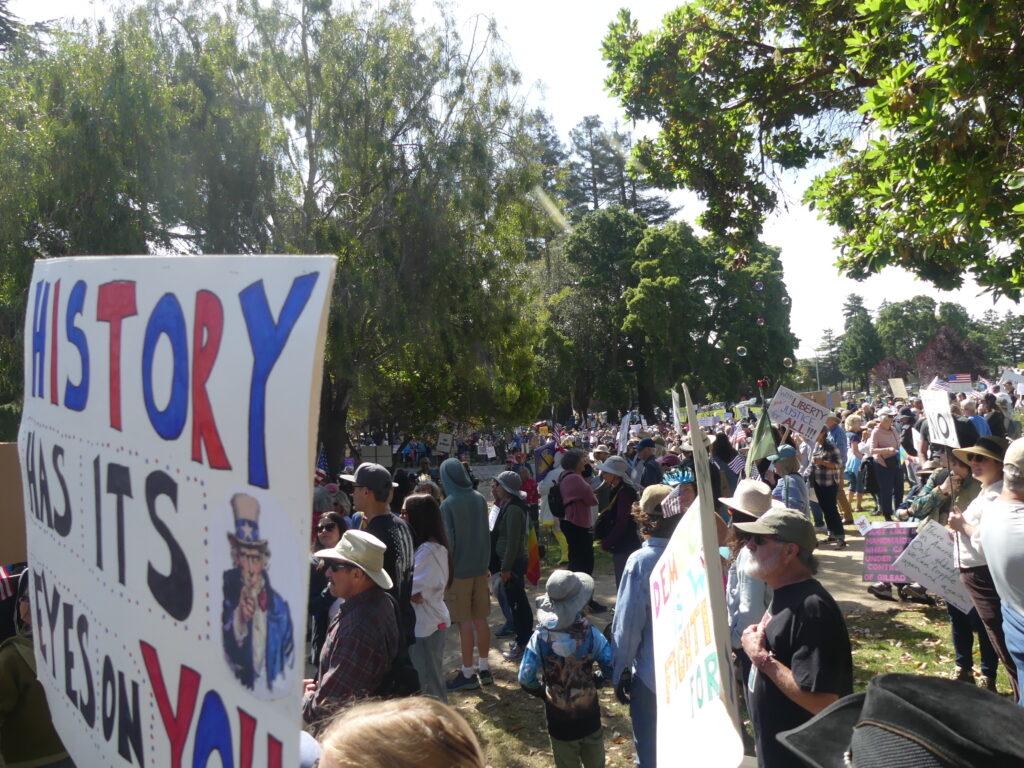
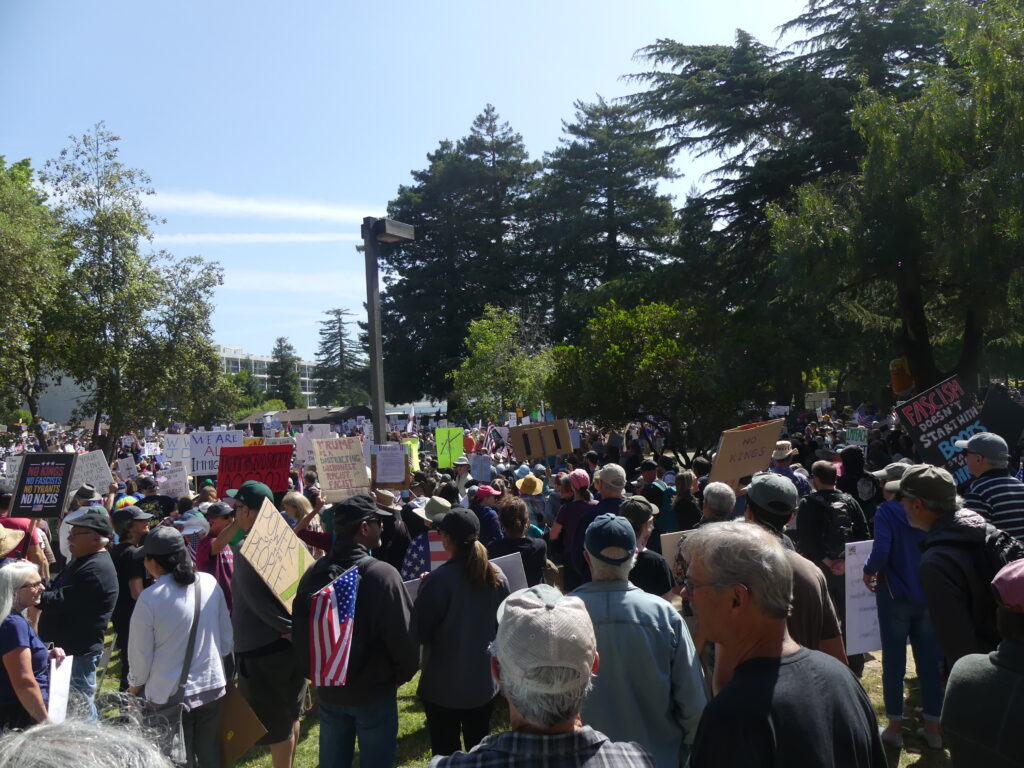
MIT explains on their webpage that they are proud to be one of the first universities in America to obey authoritarian orders from Trump and his regime: see MIT’s current “Understanding MIT: Merit and Excellence” webpage.
MIT advertises on their webpage that they are one of the first universities, leading other universities in America, to remove all references to Diversity, Equity, and Inclusion initiatives across the university campus.
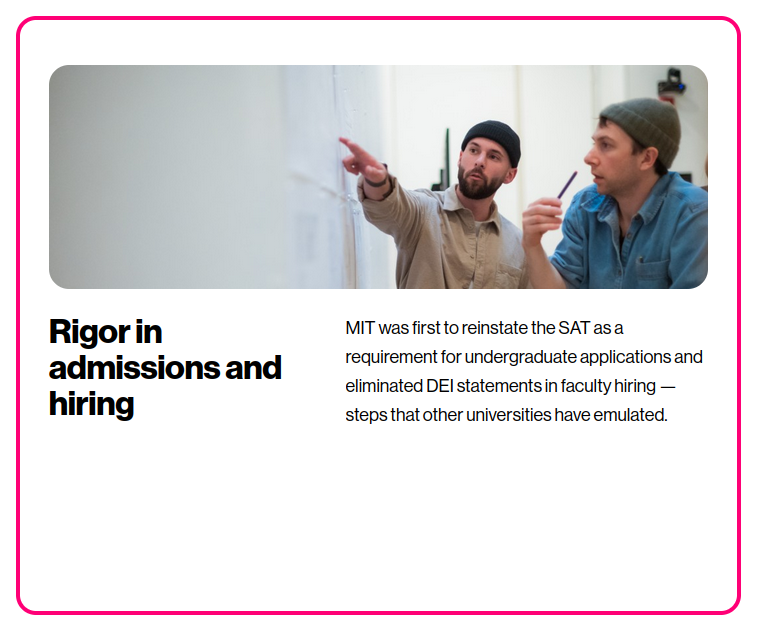
MIT has moved quickly to silence the First Amendment right to freedom of speech for students that nonviolently protest the ongoing genocide of Palestinians in the Middle East.

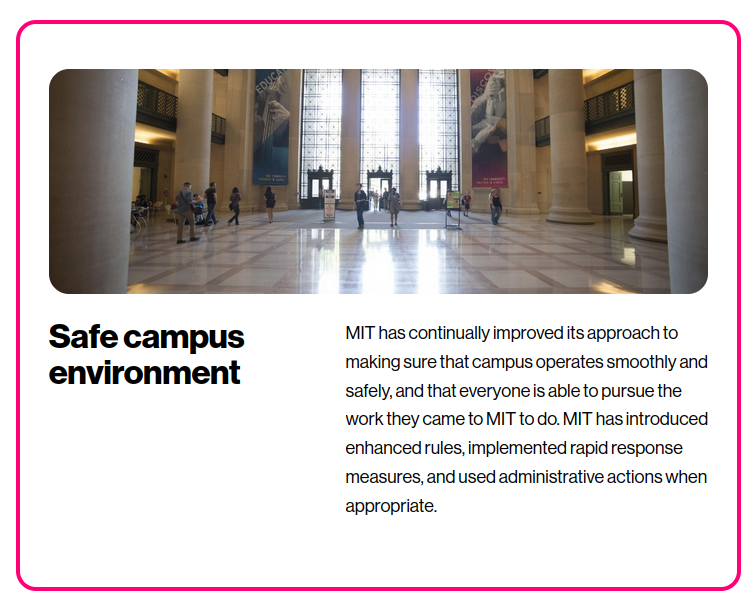
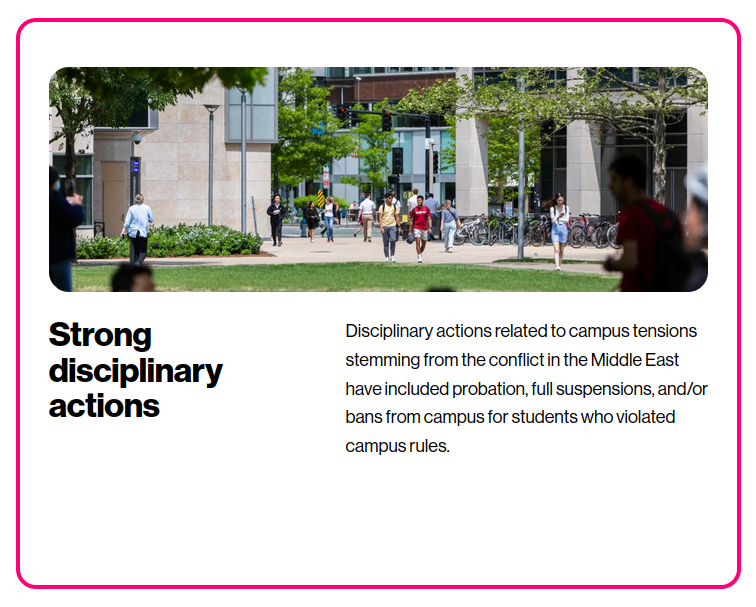
Shawn Fain, the president of the UAW (United Auto Workers), explains the free trade disaster that was NAFTA and how tariffs are part of an intelligent strategy for protecting workers’ rights. He explains how 99% of Trump’s policies go against workers’ rights, and while Trump’s tariffs are generally careless and harmful to workers in America, Trump’s auto tariffs are specifically good for American auto workers and the working class in America.
UAW President Shawn Fain discusses the political moment we find ourselves in, our union’s position on tariffs and trade, and the attacks we are facing from the Trump administration.
I spent from approximately 33 to 43 years old, getting angry at my job and career. My reasons for being angry included going against my core values. I blamed others. I descended into a daylong habit of constant cannabis and nightly alcohol binges. My marriage suffered. One point I’d make: don’t spend a decade doing that.
I’m grateful that I had the wherewithal and the insurance to commit myself to a life changing addiction recovery program. I’m grateful that I am a sober, forever recovering alcoholic and addict, but you don’t need to go there, although it is the way that I found the amazing people and social agenda of the recovery community.
In the beginning of my recovery, I had a number of realizations:
I am now inspired and in the process of changing careers. I’m no longer angry. I’m grateful that I have not lost my marriage, and I still live with my wife and my 3 year old son. I feel a growing strength of self that allows me to be supportive of those around me in ways that I couldn’t imagine doing for myself, let alone anyone else previously.
Other random thoughts that helped me on my path:
I got Linux running on a 32-bit RISC-V CPU that I programmed into a Lattice ECP5 FPGA using a completely open source toolchain. For more information, see my project page.

I am learning to ride my bike without hands.
On Dec. 12, 2022 Tyoma took his first steps!
In pursuit of learning the free and open GPU programming language, GLES2, I’ve written a particle simulation that attempts to simulate 8 billion particles, inspired by the number of people alive today.
More details: Democracy
In my pursuit of learning the free and open standard GPU programming language, GLES2, I’ve written the beginning of a small 3D grid-based physical simulation that includes water, dirt, sunlight, and hopefully in the future, growing plants.
See current details: Tree